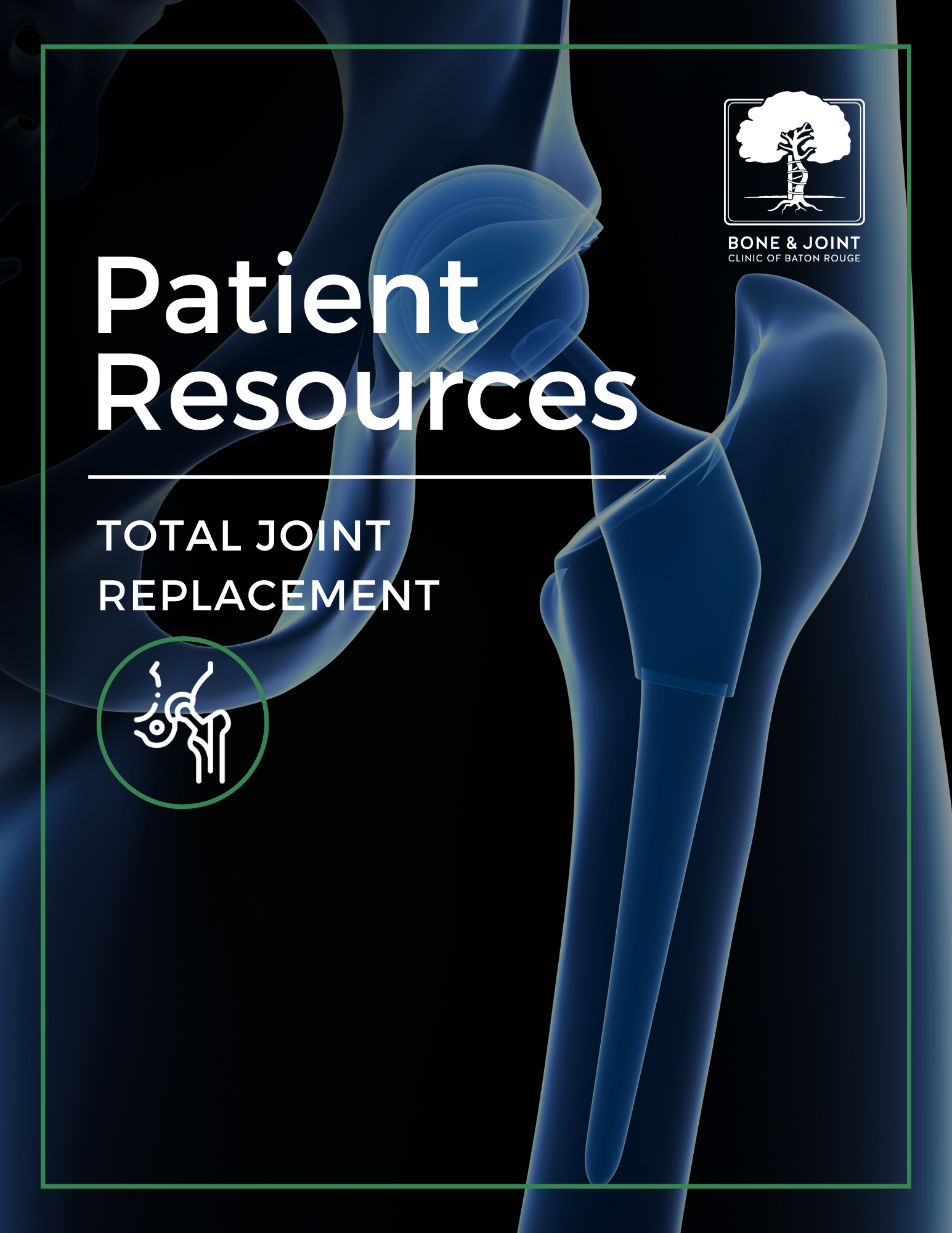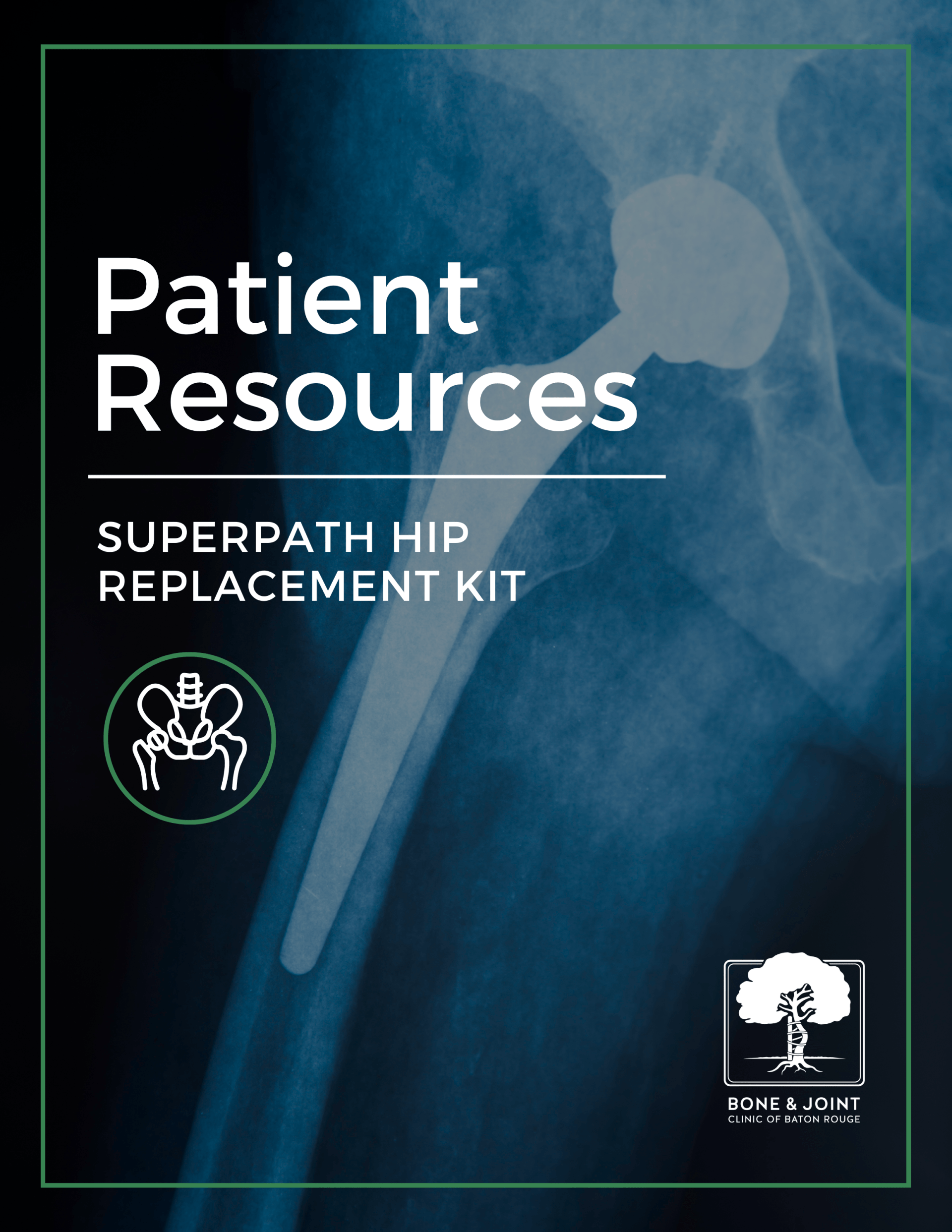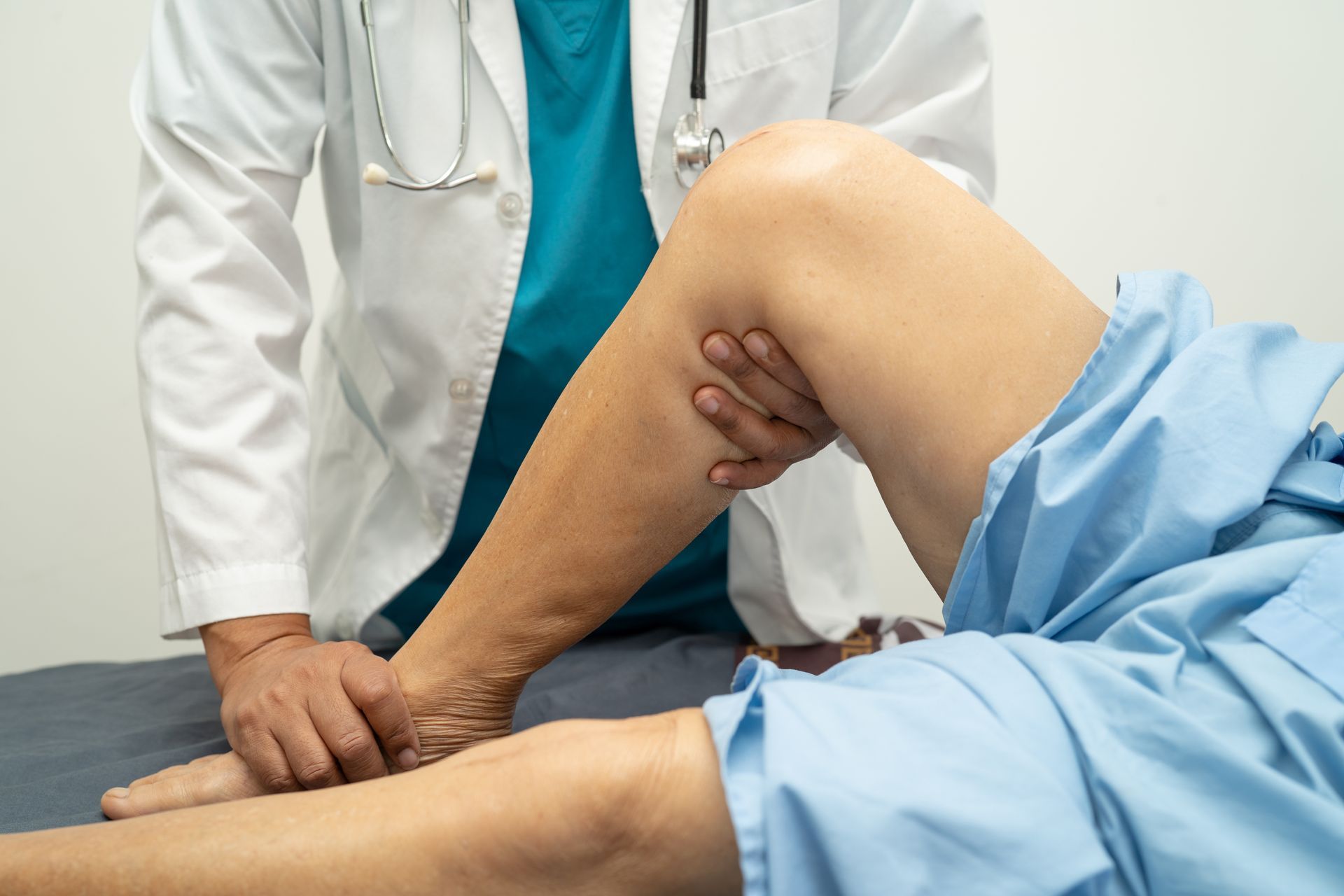Joint Replacement Baton Rouge
What are the Most Common Types of Joint Replacement?
Knee replacements and hip replacements are among the most common types of orthopedic surgeries performed in the United States each year and are the most common types of joint replacement procedures overall. Annually, both of these joint replacements account for over 1 million surgeries.
Should I Consider a Hip Replacement?
Hip pain and stiffness that has become severe enough to interfere with daily life and that is no longer responding to less invasive treatments often warrants the consideration of a hip replacement procedure. Signs that you may need to consider a hip replacement may include:
- Worsening pain that is not improved by medication
- Pain that worsens with mobility
- Inability or increased difficulty climbing stairs or standing up from a seated position
What are the Different Types of Hip Replacement Surgery?
There are three main techniques available for replacement of the hip joint. Which one is used will depend on the patient, their condition and medical history, as well as the surgeon and their level of expertise. Among the possible approaches are anterior, posterior, and SuperPath hip replacement.
What is SuperPath Hip Replacement?
SuperPath, or Supercapsular Percutaneously Assisted Total Hip, is a special technique to perform total hip replacements that causes minimal disruption to the hip capsule and surrounding soft tissues. The main distinguishing factors of SuperPath are a smaller incision, greater preservation of deep tissues with minimal dissection, and the ability to perform the procedure without the need to dislocate the hip joint.
What are the Benefits of SuperPath Hip Replacement?
Due to its minimally invasive nature, SuperPath hip surgeries have a number of benefits over traditional replacements. These include:
- Less post-operative pain
- Minimal scarring and blood loss
- Shorter hospital stays
- Faster recovery time
- No restrictions on hip positions (i.e. – bending down, crossing legs, etc.)
Download Patient Resources
All Total Joint Replacement Resources in One Place.
Discover the benefits of the SuperPath hip procedure or review the total joint replacement surgery checklist.
Should I Consider a Knee Replacement?
A knee replacement may be an option to consider if the pain, stiffness, and instability of your knee has joint has become problematic to the point of interfering with daily life and is not responding well to other treatment options. Joint replacement is typically a final option that is reached only once the condition can no longer be adequately controlled with methods such as medication and physical therapy. Fortunately, patients who undergo knee replacements report fantastic results, with about 90 percent experiencing positive outcomes.
What are the Different Types of Knee Replacement Surgery?
The specific type of knee replacement that a patient will need depends on the extent of damage and the exact areas that are affected. Possible knee replacement options include partial knee replacement, total knee replacement, kneecap replacement, and complex (revision) knee replacement.
Are There Any Alternatives to Knee Replacement?
Despite the success rate of total knee replacement, some patients may simply not be ready to undergo the procedure. For younger patients who are experiencing cartilage degeneration of the knee, there is a possible joint replacement alternative in biologic augmented microdrilling (BAM). This procedure infuses the damaged knee cartilage with stem cells derived from bone marrow to promote regeneration and improve symptomatic pain and stiffness.
How Long Will it Take to Recover From Joint Replacement Surgery?
The recovery process following a joint replacement depends on several factors. These can include the age and overall health of the patient, as well as the specific type of surgery performed. However, any patient undergoing a joint replacement should allow for a lengthy recovery period and plan on following specific instructions from their surgeon. Following these instructions and any activity limitations precisely will help patients recovery sooner.
Baton Rouge Joint Replacement Surgeons
Joint pain is no fun which is why we want to get you back to moving more and hurting less. As leaders in assessing, diagnosing and treating joint injury and disease, our team of experts will provide a treatment plan centered around you. Take the first step towards living without joint pain by scheduling an appointment today.
JOSEPH E. BROYLES, M.D.
Joint Replacement Surgery
Hip and Knee Arthroscopy
Cartilage Regeneration
ARTHUR E. HESS, M.D.
Pediatric & Adult Orthopedic Trauma
Hip, Knee & Shoulder Reconstruction
Hip Preservation
Total Joint Replacement Surgery
Robot-assisted total knee arthroplasty
General Orthopedics
RELATED READING
Advancements in Joint Replacement Baton Rouge
Stay informed and up-to-date on the latest advancements in joint replacement from the experts in Baton Rouge.







